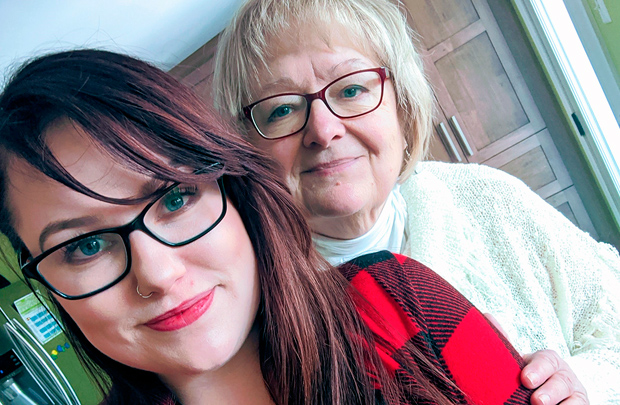
Zoe Bourgeois spent her childhood in the foster care system, meeting the woman who would become her mother when she was 11. Zoe’s adoption was finalized when she was 15.
In this guest blog post, Zoe shares her advice with parents who are planning to adopt a teen.
Understand what trauma does to a child
Before I was adopted, I’d had a failed adoption, so I came with some baggage. My mom, whether she was aware of it or not, was trauma informed. She was very good at digging through my behaviors finding the issues or problems that were causing them. A lot of the time, she would reframe what she recognized were issues into needs. In the heat of a situation, before responding, she would think: What does Zo need in this moment? What’s triggering this to make her feel this way? Having her approach me in this way validated a lot of my experiences and what I was feeling.
Use humor!
My mother deescalated a lot of heated moments using humor. When I was 11, I remember telling her after a few months: You’re ruining my life! Her immediate reply was: “I haven’t known you long enough to ruin your life! Give me some time and I’ll see what I can do.” Then she paused, and said: “Actually, you’re right. I worked in government for 30 years. I decided I hadn’t ruined enough people’s lives during that time. So I called social services and to see if there was anybody there whose life I could ruin. And they gave me you!” That reaction disarmed me.
Focus on children’s strengths
When I met my mom, I had low self-esteem and very little confidence. My mom saw things in me that I didn’t see in myself, and she brought those things to life. In sixth grade, she made a resume for me. It was her way of showing me that I had strengths and I had things to work on in the future. And that I had a future. In the years that followed, I kept adding experiences like drama and sports and public speaking to the resume. I think that’s huge, because when you’re a child in care, you don’t see the positives and the opportunities in your experiences.
Be a strong advocate
My mother was a strong advocate for my needs—and for her needs. She wasn’t afraid of the system, or scared to tell them what was and wasn’t working. When I was 13 I ran away and ended up in a specialized placement. My mom stuck by me the entire time. She just stayed there and was focused and determined to make our relationship work. During that time, I think she felt like she wasn’t being heard. I remember one night she went to my psych’s house at 8 p.m., knocked on the door, and said: “I’m not leaving until we come up with a plan of how we’re going to get my daughter back.”
Don’t take things personally
That story and many others I could tell illustrate this point. I said some mean things to my mom, and she always understood that it was from some sort of trauma or trigger. She knew we were mother and daughter and she wasn’t going to let that go no matter how far I ran or how hard I tried to push her away.
Make the house a home
I never had my own room or was able to decorate my own room. Before I moved in, my mother spent a whole month getting my room ready. She painted my bedroom walls with dolphins and a night sky. She made that safe space for me. And on the first day I walked in, and I felt comfortable and like I was finally home.
Don’t force a routine on them—especially your own routine.
You cannot expect a child to adjust to your routine. They’re probably coming from an unstructured home, and are not used to a lot of rules. Sitting down to dinner every day could be a trigger. Talk with them and find out what kind of routine works for them. For example, you might ask, “We like to sit at supper. Would you like to join us?” It might take time, and you need to work at the child’s pace. My mom was good at combining her routine into mine, and ultimately, we created our own routine together.
Know that they’ll stick around!
Some people who are planning to adopt think: If I adopt an older child, I’ll only get a kid for a few years. But guess what? Sometimes we don’t go away! I’m 28, and I still live with my mom. The children you adopt can still be with you when they are old—and even very old.